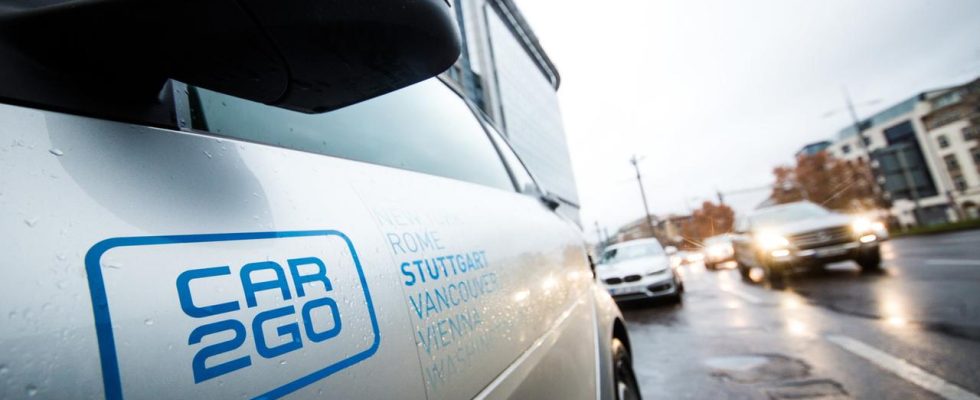Car sharing should become largely climate-neutral by 2026 according to the will of the traffic light. Stationary car-sharing fleets may then only consist of climate-neutral cars. Criticism comes from providers.
It’s cheeky, criticizes Bernd Sluka, a member of the Carsharing Passau ev association – and is referring to a recent decision by the coalition committee. While the general end of combustion engines will only apply from 2030, new carsharing cars should be climate-neutral four years earlier, according to the decision of the traffic light parties.
Currently, 20 percent of carsharing vehicles are electrically operated. This is a significantly higher proportion than in the nationwide total number of passenger cars: there it is just under four percent. However, from 2026 onwards, buying only climate-neutral cars is hardly financially feasible for smaller car-sharing providers such as the Passauer Verein, says Sluka.
Bernd Sluka and Boris Burkert bought an electric car for their Passau car sharing club.
What does the federal government fund?
Together with his colleague Boris Burkert, he founded the Passau carsharing association eleven years ago. They now operate nine vehicles on a voluntary basis, including an electric car since last year. Purchasing it was a challenge in many respects: the charging station alone cost almost 10,000 euros.
They received federal funding for both the car and the charging infrastructure, but the program for this has now expired. A sequel is not in sight, but they would be in dire need of it, says Burkert.
On request, the Federal Ministry of Transport refers to a funding program of 14 million euros for electromobility. Subsidies could be applied for here until May 8th. However, Sluka complains that an application would have little chance of success for her. Because companies that want to switch on a large scale – i.e. apply for funding for many cars – have priority.
discussions with the municipalities
He criticizes that there would most likely be no money left for small car sharing clubs that still mainly use combustion engines and, for example, only want to buy one or two electric cars. It is also a challenge for them to get above the minimum funding of 15,000 euros.
Markus Büchler, mobility policy spokesman for the Greens in the Bavarian state parliament, also advocates funding, but in contrast to Sluka does not see the federal government as primarily responsible, but the state of Bavaria. There are currently only subsidies for public charging stations, but they will expire in 2024.
Büchler is confident that a solution can be found in consultation with the providers and local authorities. North Rhine-Westphalia, for example, is a pioneer. There, the state assumes up to 40 percent of the costs for the new charging infrastructure for car sharers, electric cars are subsidized with 8,000 euros.
Contributions could increase significantly
Because in addition to environmental considerations, lower costs are also the reason for many people to switch from their own car to car sharing; so also with Francois Weinert. He joined the Passau club a few years ago and sold his own car back then.
As a photographer he travels a lot; he is happy to have a parking space right in front of his office and thus avoid the annoying search for a parking space in the busy city centre. He currently pays a membership fee of 80 euros per year, plus 2.40 euros per hour and for the kilometers driven.
But it won’t stay that cheap without subsidies. If the federal or state government does not subsidize anything, small, non-profit-oriented associations will have to noticeably increase their contributions. Sluka criticizes that this is counterproductive if you want to convince other people to switch to car sharing.

